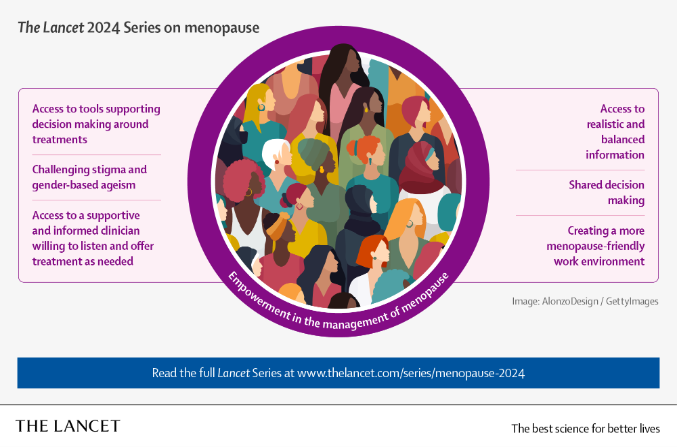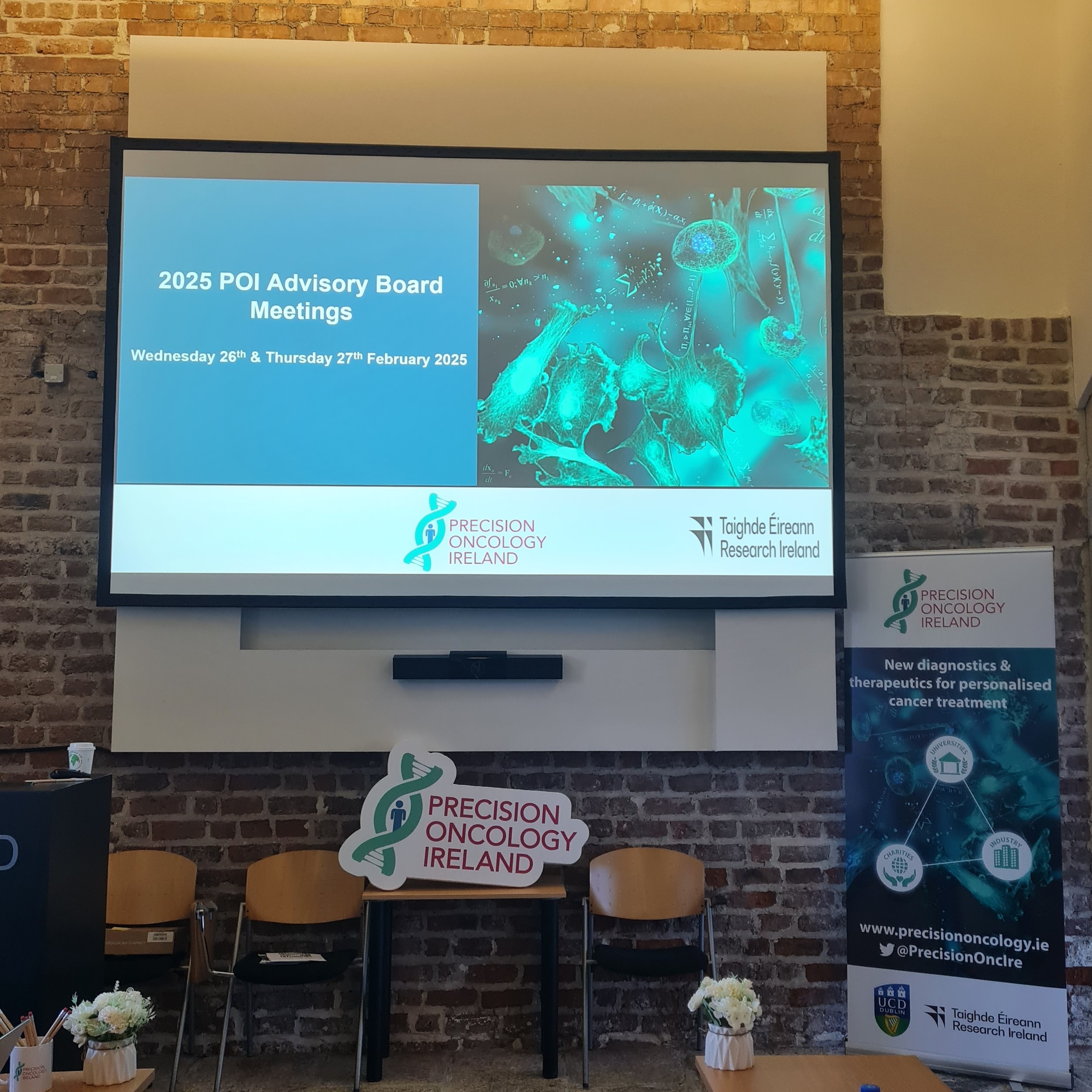The Lancet 2024 Series on menopause
An exciting new series of articles just released in The Lancet argues for a better understanding of menopause, using an evidence based approach to inform treatment, build more-empathic clinical care and provide women with better support during this life stage. Each of the 4 articles look at a different side of issues faced by menopausal women, with the final article in the series featuring Prof. Donal Brennan as senior author. Prof Brennan is an investigator in POI, a cancer research consortium coordinated by Systems Biology Ireland in UCD.
 “Managing Menopause After Cancer,” from Brennan and colleagues identifies the impact of early menopause and the severity of menopausal symptoms in cancer survivors, providing evidence-based recommendations from the current literature toward implementing a more personalised and multidisciplinary approach in treatment of menopause symptoms after cancer. The review looks at a number of factors including patient cancer types, age, socioeconomic status and cultural practices at play.
“Managing Menopause After Cancer,” from Brennan and colleagues identifies the impact of early menopause and the severity of menopausal symptoms in cancer survivors, providing evidence-based recommendations from the current literature toward implementing a more personalised and multidisciplinary approach in treatment of menopause symptoms after cancer. The review looks at a number of factors including patient cancer types, age, socioeconomic status and cultural practices at play.
Brennan, who is Professor of Gynaecological Oncology in the UCD School of Medicine and Principal Investigator in the Precision Oncology Ireland strategic partnership programme, as well as a gynaecological oncologist in the Mater Misericordiae University Hospital in Dublin, is the senior author on the paper.
“Patients have repeatedly highlighted the burden of menopause symptoms after cancer treatment. They feel that these are often minimised or in some cases ignored,” said Brennan. “We hope that this paper will provide a summary of evidence-based approaches to treat menopause symptoms, including the use of HRT if indicated and more importantly stimulate more research in this area.”
The article comes at an important juncture in cancer research where cancer survivorship is improving, but the long-term effects of treatment and quality of life issues are coming to the fore. “Managing Menopause After Cancer” specifically looks at long-term effects of cancer treatment such as premature ovarian insufficiency and early menopause. The symptoms of these can be significantly challenging to patients as they may be more severe than the symptoms of natural menopause. Brennan and colleagues give a comprehensive view of the current hormonal and non-hormonal therapy options studied and suggest a framework for more cost-effective and patient-focused models of care to meet the needs of a growing population of cancer survivors.
Brennan’s group at SBI focuses on precision medicine solutions for ovarian cancer and cancer genomics. Brennan also works on examining the underlying molecular mechanisms of obesity induced carcinogenesis with other active research groups in UCD and St. Vincent’s University Hospital, Dublin. He also leads the Women’s Health Initiative project at the Mater Hospital, funded by the Irish Cancer Society, which focuses on the development of evidence-based survivorship services for women living with and after cancer and leads a number of clinical trials in the area of menopause and cancer. In 2023, he was appointed National Clinical Lead for Cancer Research in Ireland.
You can read Donal's paper and the rest of the Lancet Series here

